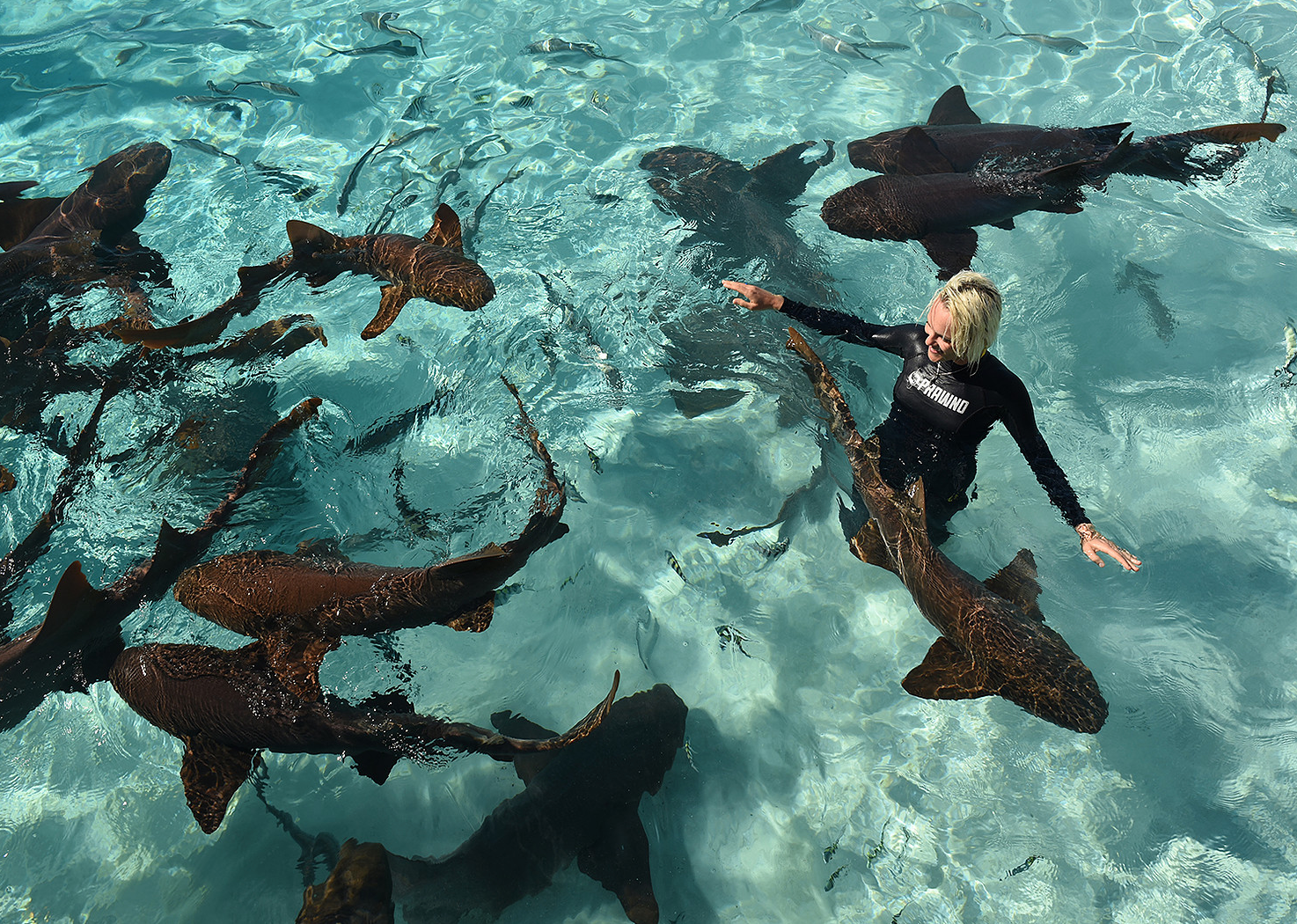Mindless Killers... and No, I’m Not Talking About the Sharks
Madeline St Clair Baker
Following a shocking weekend for Australia, SIX sharks have now been killed in the area of Whitsunday Islands by Australian authorities after a woman and a 12-year-old girl were bitten by a shark in two separate incidents. Want to know what’s going on? Keep reading to find out in this opinion piece…
Photo: Duncan Brake
If you haven’t been hot on the news for the past few days, you may not have heard of the recent shark attacks to befall the Whitsunday Islands. Justine Barwick, 46, and schoolgirl Hannah Papps sustained life-threatening injuries from sharks whilst swimming in the same area. In a controversial move, the Australian government has sought to make the area a ‘safer place’, by deploying drum lines to:
“... remove large, dangerous sharks from the area and reduce the risk to people.”
Of course, it goes without saying that we must not dismiss the trauma or suffering felt of the victims who were bitten by shark/s, but to meet an incident such as this with vengeful, unnecessary aggression comes from an archaic and uneducated perception of sharks.
And this is where the tragedy really begins.
Before we even start to disentangle how nonsensical an idea this is, let’s recap the action that has already been taken by the authorities. On the day of the second incident (Friday), baited hooks were deployed by Fisheries Queensland officials to catch sharks. Since then, six sharks have been culled in association with the ‘attacks’, their bodies euthanised and towed out to sea for disposal. Educated move? Debatable. Rash? Most definitely.
So, get your knitting needles ready – it’s time to unpick some ridic(ulousness).
Firstly, let’s not put a wolf in sheep’s clothing. Six sharks are now dead. I’ll translate this action into English for you. Two words:
Shark. Cull.
Cull (Definition): to reduce the population of a wild animal by selective slaughter.
As an advocate for sharks, it is my personal belief that in 99% of cases, killing any shark is unnecessary. But in this specific case, had just one shark been killed, perhaps I could understand the reasoning behind it. As a government, there is a type of public pressure that often occurs following incidents such as these, to catch the “guilty one”. This pressure, archaic and ignorant though it may be, can still exert considerable force upon an authoritative body to take drastic and often unnecessary action to satisfy public outcry.
So yes, though I disapprove, I can understand the intentions behind killing one.
But for some reason, one was not enough, and in what can only be described as a blood-thirsty fashion, the mindset has seemingly yielded to the primitive: “we will hunt them all!” For the Australian government to continue this trigger-happy and ultimately unsuccessful ‘pursuit of the attacking shark’ is quite frankly absurd. What validation is being sought? Must we string up the head of every shark within 10 miles of open ocean? Nail them by fin to the gallows and say, “this is the culprit… no wait, this is the culprit… no, this one!”
And this brings me to my second point: if you’re going to start culling an animal willy-nilly, you should probably be solid in your justifications. As a marine biologist, I’m not a huge fan of mass-killing anything unless you have some solid science behind its necessity. Was I a fan of the seal cull in Namibia, a brutal, disgusting abuse of animal rights in the (alleged) name of saving fisheries? No. That badger cull in England? Shaky science at best. And now, slaughtering sharks to make an area safe? I’m sorry, but I just can’t get onboard.
To make matters worse, a stunningly insightful statement from the Department of Agriculture and Fisheries, pretty much sums up exactly why this cull should just not even be a thing:
“While sharks of this size are potentially very dangerous to humans, it is unclear if they were responsible for injuries caused to two swimmers this week..."
- Department of Agriculture and Fisheries
In the same way that 1+1 does not equal a window, removing sharks from area does not equal reducing risk to humans. Wake up. You are not hunting an all-mean-killing-machine from Amity Island. Five tiger sharks and a small black tip are already dead. (A small black tip?! Explain, plz...) How has it come to the blind slaughter of any individuals that happen upon the nearby vicinity? And for what? Sharks migrate, you know. Take some out, some swim in. The ocean is kinda like that.
So, when you go around shooting sharks left right and centre under the pretence of #makewhitsundaysafeagain, do you propose that we just try and remove every single apex predator from the GBR? You may as well just say let’s pop them all into a box and FedEx them off to China.
When I posted about this on Instagram today, my inbox was hammered by one question, over and over:
“But are sharks safe?”
I am so fortunate in my experience as a diver to have had a number of personal interactions with these creatures, witnessing their shy placidity, disarming grace and gentle nature first hand. Take a look on social media and you will find 10 000 others in my community who will tell you the same. But I’m not going to insult your knowledge and proclaim sharks to be the cute cuddly kittens of the sea and nor will I ever say that polar bears are the same as your housetrained puppy. These are wild animals and should be respected as such.
And yes, very occasionally, sharks attack people. In 2018, there were 88 unprovoked shark attacks. 5 were fatal. As with everything, the media hype can be overwhelming and damaging. It feeds off an innate yet unfounded fear of sharks, born of a conviction that should be consigned to the era of that iconic 1975 movie. Drama breeds drama. In this case, had the tragic events not occurred within 24 hours of each-other, perhaps the response would have been different.
So, if culling sharks is not the answer, then what is? How does one make a popular tourist spot safe for swimming, sailing, surfing, diving, snorkelling and so on? Well, this all boils down to one poignant and inevitable question: how do we avoid shark-human conflict in the future?
And perhaps the answer is this: We simply cannot.
Sharks live in the sea. And inevitably, an occasional interaction will be aggressive.
More people are killed by cows per year, than by sharks. Fact. Dogs, hippos, lightening – all bigger killers - but they do not inspire this fear and bloodlust that we too often associate with shark attacks.
So, I ask this: WHY do you not better educate about how to swim/surf/sail in areas with known shark populations? WHY do you not learn that killing sharks in vengeance does not make the ocean a safer place? WHY do you continually fuel this negative public perception and create a climate of fear?

